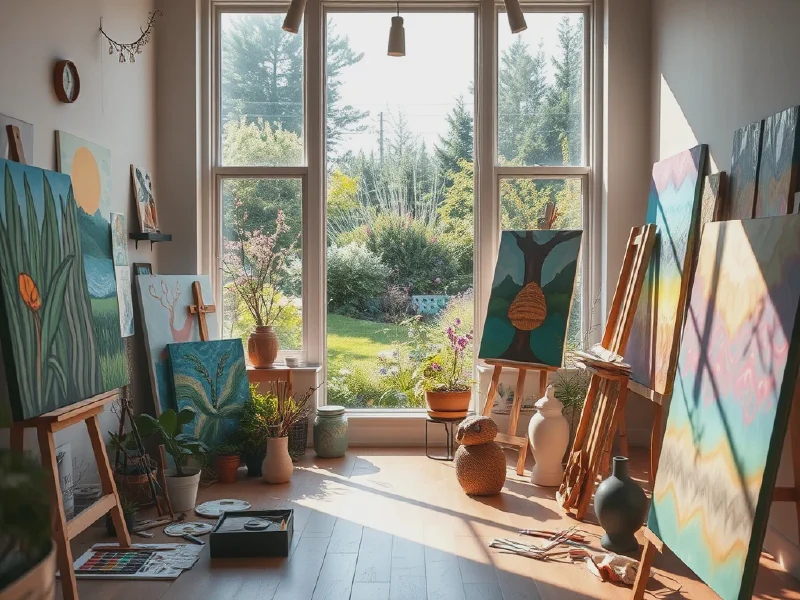Exploring Art Therapy in Addiction Recovery in Portland

Art Therapy in Addiction Recovery in Portland: A Creative Path to Healing
Art Therapy in Addiction Recovery in Portland has emerged as a vital resource for individuals seeking to overcome addiction. By integrating creative expression into the recovery process, participants can explore emotions and experiences that traditional therapy might not address. This approach is not just about creating art; it's about using the creative process as a healing tool.
Many practitioners have found that The Use of Art and Music Therapy in Substance Abuse Treatment Programs significantly enhances recovery outcomes.
The significance of Art Therapy in Addiction Recovery in Portland lies in its ability to provide a safe and expressive outlet. Through various art forms, individuals can convey their feelings, reduce anxiety, and discover deeper insights into their challenges. By engaging in art therapy, participants often find a sense of community and support, which is crucial for lasting recovery.
Furthermore, Art Therapy in Addiction Recovery in Portland offers an alternative way to process trauma and pain associated with addiction. These creative avenues allow participants to reflect on their journey, recognize their strengths, and foster resilience. The experiential aspect of creating art can lead to breakthroughs that amplify the therapeutic process.
The evolution of Art Therapy in Addiction Recovery in Portland is a testament to the changing landscape of treatment. As more recovery programs adopt creative therapies, the positive outcomes speak for themselves. This holistic approach complements traditional methods, offering individuals a more rounded path to sobriety.
In conclusion, Art Therapy in Addiction Recovery in Portland is not merely an adjunct to traditional methods; it is a transformative practice that holds the potential to change lives. Through art, individuals find their voices, heal from within, and reclaim their futures with renewed hope and purpose.
Understanding Art Therapy
Art therapy is a therapeutic practice that utilizes creative expression, such as drawing, painting, and sculpting, to help individuals explore their emotions and experiences. It is grounded in psychological principles that foster self-discovery and healing. By allowing participants to create without judgment, art therapy helps them access feelings that may be difficult to articulate verbally.
In the context of addiction recovery, art therapy aids individuals in addressing the underlying issues that contribute to their substance use. It serves as a non-threatening way to express feelings of shame, grief, or loss. Through the art-making process, individuals can process traumatic events and develop coping strategies, enhancing their overall recovery journey.
The benefits of creative expression in therapy are profound. Engaging in art allows individuals to release pent-up emotions and provide a tangible form of their internal struggles. This creative outlet can lead to improved self-esteem, emotional regulation, and social connection, ultimately promoting a healthier lifestyle in recovery.
Art Therapy Techniques
Various art therapy techniques are employed in addiction recovery, including storytelling, collage-making, and guided imagery exercises. These methods inspire creativity while allowing participants to explore their feelings and share their experiences in a safe environment. Therapists often tailor techniques to the individual’s needs, ensuring an effective therapeutic process.
Implementing art therapy in treatment programs can take many forms, from individual sessions to group workshops. Programs may integrate art therapy alongside traditional counseling to enhance the overall recovery experience. By incorporating art into treatment, providers give individuals a unique opportunity to connect to their emotions and goals.
Guided imagery and visualization play a vital role in art therapy, helping individuals relax and focus their thoughts. Therapists may use these techniques to inspire creativity or as a meditative practice. By visualizing goals and healing, participants can strengthen their commitment to recovery and create a motivational mindset.
Case Studies in Portland
Portland is home to several successful art therapy programs that showcase the therapeutic potential of this approach. Organizations like the Art & Soul Recovery Program have demonstrated significant success in helping individuals navigate their recovery through creative expression. Participants engage in various art forms, gaining insight and building connections with others in recovery.
Testimonials from individuals in recovery highlight the transformative power of art therapy. Many describe the sense of relief and catharsis that comes from creating art. For some, art therapy has been pivotal in their sobriety, providing a necessary outlet to deal with complex emotions and experiences.
Moreover, community involvement significantly impacts therapy outcomes. Support from local artists, art supply donations, and collaborative events enhance the overall experience for participants. By fostering a sense of community, art therapy helps individuals feel less isolated in their recovery journey.
Events and Workshops
Upcoming art therapy workshops in Portland aim to engage individuals in creative expression while deepening their recovery journey. These workshops provide a platform for participants to learn new skills, connect with others, and explore various art forms that resonate with their experiences.
Community events promoting art therapy play a crucial role in raising awareness and fostering connections. Art fairs, exhibitions, and open studios allow participants to showcase their work, emphasizing the importance of creativity in recovery. These events create an inclusive environment that celebrates individual journeys.
Collaboration with local artists creates rich opportunities for growth and skill development in recovery programs. Artists often volunteer to facilitate workshops, offering professional guidance and encouragement. This partnership enhances the experience of art therapy and creates a supportive network for individuals in recovery.
Research and Evidence
Numerous studies support the effectiveness of art therapy in addiction treatment. Research shows that engaging in art therapy can lead to reduced symptoms of depression and anxiety among individuals in recovery. The creative process facilitates emotional expression, which is crucial for healing and long-term sobriety.
Statistics reveal promising recovery rates among participants in art therapy programs. Many individuals report increased feelings of self-worth and emotional resilience, resulting in lower relapse rates and improved overall well-being.
Research findings from Portland-based projects further affirm the benefits of art therapy. Evidence indicates that individuals who participate in creative therapies demonstrate higher engagement in their recovery process, leading to better treatment outcomes and sustainable lifestyle changes.